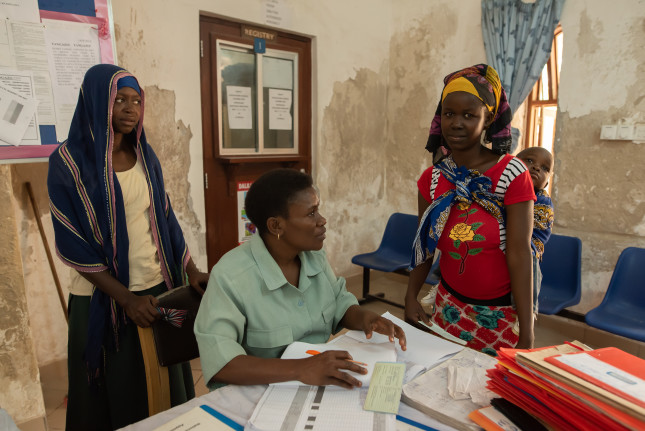-
Integrating Leadership Skills in Cervical Cancer Prevention Efforts
February 2, 2022 By Shariq Farooqi
With a high burden of cervical cancer in Tanzania, we are advocating for the government’s parliament to prioritize cervical cancer prevention in its annual budget, said Dr. Safina Yuma, a Reproductive Cancer Coordinator at the Ministry of Health, Tanzania, at a recent event hosted by TogetHER for Health on cervical cancer leadership in recognition of cervical cancer awareness month. At least 270,000 women die globally from cervical cancer each year and in Tanzania, it is a leading cause of death, taking the lives of approximately 4,200 women annually. However, cervical cancer is 90 percent preventable with appropriate prevention strategies such as human papillomavirus (HPV) vaccinations and screenings. Expert leaders from NJIA, a leadership development program for practitioners working in cervical cancer research and prevention, discussed strategies for improving collaboration and leadership within the medical profession to reduce avoidable deaths.
In Tanzania, medical professionals tend to have excellent clinical skills, but often lack adequate leadership and management skills, said Dr. Yuma. We seek to empower our healthcare workers, however, there is little support for this in healthcare systems, she said. NJIA is working to empower healthcare workers and has brought together over 300 leaders from Tanzania’s health workforce and Roche, a partnering pharmaceutical company, to collaborate on innovative ideas to improve leadership surrounding cervical cancer, said Sarah Galvin, Executive Director of Pepal, an organization established to foster cross-sectoral collaboration, empower leaders, and co-create solutions to social issues. As a leader and a healthcare provider, you need to be able to listen to and provide timely responses to everyone’s concerns, said Dr. Oscar Rwabiyago, Senior Public Health Specialist at the Centers for Disease Control and Prevention (CDC), Tanzania. With a team of varying skill levels and professional experience, it is key to value everyone’s contributions, he said.
Through the NJIA program, Ugandan healthcare leaders gained insights from their Tanzanian counterparts and implemented tools into practice to measure their team’s performance when treating cervical cancer patients. In Uganda, the Caring Together project developed nine modules to address leadership challenges, such as conflict management, which were paired with tools to track progress, said Dr. Musiime Michael Koima, Governance and Leadership Managerat Baylor Uganda. There was a tangible improvement in health facilities’ operation, with a 43 percent reduction in client waiting time after implementation of monthly staff meetings and team performance monitoring tools, he said.
The NJIA program also measured its success through quantitative data of cervical cancer screenings. In the seven districts of Kagera, Tanzania, there was an average increase of 519 percent in the number of cervical cancer screenings since NJIA was launched four years ago, said Galvin. By utilizing data on cervical cancer, you can depict the magnitude of the issue to district leaders and stakeholders, effectively influencing policy and advocating for stronger leadership, said Dr. Koima. Data can also help determine additional entry points for cervical cancer screenings to be integrated via reproductive health services and HIV programming, for example, said Dr. Yuma. In the strategy to eliminate cervical cancer, Tanzania’s Vice President launched a campaign to distribute the HPV vaccine, marking the beginning of informed leadership, said Dr. Yuma. The HPV vaccine rollout is a part of our wider advocacy and strategic plans we are moving forward to educate our leaders in preventing cervical cancer, she said.
Read more:
- How to include cervical cancer in comprehensive reproductive health care?
- Women in India are vulnerable to cancer.
- Women in leadership positions point to the need for stronger health public policy.
Sources: Baylor College of Medicine Children’s Foundation- Uganda, Centers for Disease Control and Prevention (CDC), Gynecologic Oncology, Pepal, Roche, Tanzania Ministry of Health, TogetHER for Health, World Health Organization.
Photo Credit: Staff from a rural hospital are working at the entrance of the clinic receiving a young with her child who needs medical assistance. Gonzalo Bell/Shutterstock.com.
 A Publication of the Stimson Center.
A Publication of the Stimson Center.



